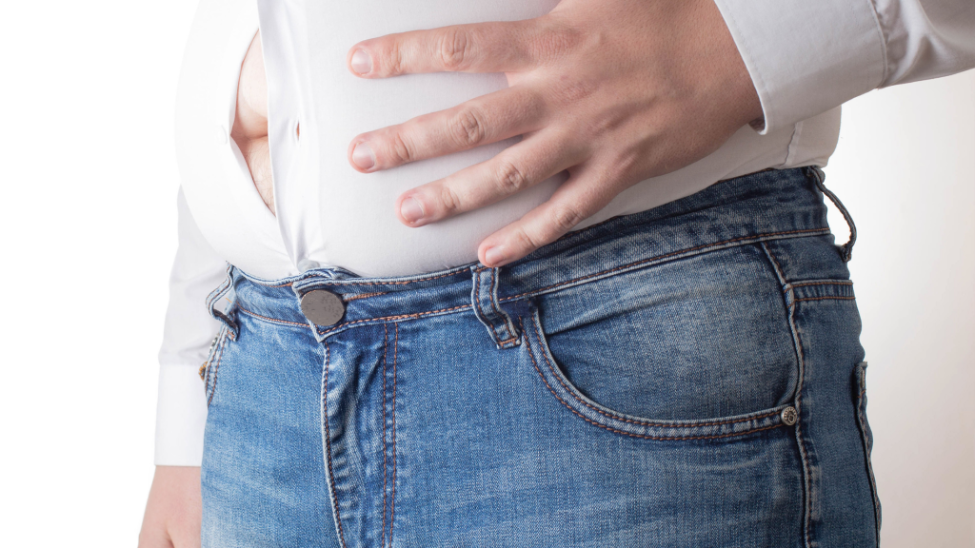The holiday season often brings indulgent meals, sugary treats, and festive beverages. While these moments create cherished memories, they can also leave you feeling bloated, sluggish, and uncomfortable. Post-holiday bloat is a common concern, and it occurs when your digestive system struggles to process the rich, heavy foods typically consumed during celebrations.
The good news is that you don’t have to endure this discomfort for long. By understanding how to reset your digestive system and support your gut health, you can get back to feeling your best. Incorporating tools like probiotics for gut health can play a significant role in rebalancing your digestive system and reducing bloating.
What Causes Post-Holiday Bloat?
Bloating is the result of excess gas or water retention in your digestive tract. During the holidays, several factors can contribute to this issue:
● Overeating: Consuming large portions puts extra strain on your digestive system, slowing down digestion and causing discomfort.
● Rich, Fatty Foods: Foods high in fat take longer to digest, leading to a feeling of fullness and heaviness.
● Sugary Treats: Excess sugar can disrupt your gut microbiome, encouraging the growth of gas-producing bacteria.
● Alcohol Consumption: Alcohol irritates the lining of your digestive tract and can lead to dehydration, which affects digestion.
● Low Fiber Intake: Holiday meals often lack fiber, which is essential for promoting regular bowel movements and preventing constipation.
Understanding these triggers is the first step in avoiding post-holiday bloat and resetting your gut.
Steps to Reset Your Digestive System
Recovering from holiday indulgence involves making thoughtful dietary and lifestyle changes to support your gut health. Here are key strategies to help you feel lighter and more energized:
Hydrate to Flush Toxins
Water is essential for digestion and helps flush out excess sodium and toxins that contribute to bloating. Aim to drink at least eight glasses of water daily, and consider starting your morning with a glass of warm water and lemon to stimulate digestion. Herbal teas like ginger or peppermint can also soothe an irritated stomach and reduce bloating.
Focus on Whole, Nutrient-Dense Foods
Shift your diet back to whole foods rich in nutrients, such as fruits, vegetables, lean proteins, and whole grains. These foods are easier for your body to digest and provide essential vitamins and minerals to support your recovery. Avoid processed and high-sodium foods, which can exacerbate bloating.
Incorporate Probiotics for Gut Health
The holidays can disrupt your gut microbiome, leading to an imbalance of beneficial and harmful bacteria. Taking probiotics for gut health can help restore balance and improve digestion. Probiotics introduce beneficial bacteria that reduce bloating, enhance nutrient absorption, and support regular bowel movements.
Increase Your Fiber Intake Gradually
Fiber is crucial for maintaining a healthy digestive system, but adding too much too quickly can lead to gas and discomfort. Start by incorporating fiber-rich foods like leafy greens, oats, chia seeds, and beans into your meals. These promote regularity and help move excess waste out of your system.
Limit Sugar and Refined Carbohydrates
Sugary and starchy foods feed harmful bacteria in your gut, contributing to gas production and inflammation. Cutting back on these foods can help rebalance your microbiome and reduce bloating. Opt for natural sweeteners like honey or fruits if you’re craving something sweet.
Stay Active
Physical activity stimulates your digestive system, helping to move gas and waste through your intestines. Even light exercises like walking, yoga, or stretching can ease bloating and improve circulation.
Practice Mindful Eating
Eating slowly and chewing thoroughly reduces the amount of air swallowed during meals, which can minimize bloating. It also gives your digestive system time to process food more efficiently. Avoid distractions like screens during meals to focus on your food and prevent overeating.
Get Plenty of Rest
Sleep is a critical factor in gut health. During sleep, your body repairs and regenerates, including your digestive system. Aim for 7–9 hours of quality sleep each night to support recovery and reduce post-holiday fatigue.
Foods That Soothe Digestion
Certain foods are particularly beneficial for soothing your digestive system and relieving bloating. Consider adding these to your diet during your reset:
● Ginger: Known for its anti-inflammatory properties, ginger can calm an upset stomach and reduce gas. Add it to teas, soups, or smoothies for a gentle digestive boost.
● Bananas: Rich in potassium, bananas help regulate fluid balance and counteract bloating caused by excess sodium.
● Yogurt: A natural source of probiotics, yogurt replenishes good bacteria in your gut. Choose plain, unsweetened varieties for the best results.
● Papaya: This tropical fruit contains enzymes like papain that aid in breaking down proteins and easing digestion.
● Fennel Seeds: Chewing fennel seeds after meals can reduce gas and bloating by relaxing the muscles in your gastrointestinal tract.
The Role of Probiotics in Reducing Bloat
Probiotics are live microorganisms that promote a balanced gut microbiome. After a holiday season filled with indulgent foods, your gut bacteria may be out of balance, leading to bloating and sluggish digestion.
Taking probiotics can help reintroduce beneficial bacteria, crowding out the harmful strains that thrive on sugar and processed foods. Probiotics also enhance the production of digestive enzymes, improve nutrient absorption, and support a healthy gut lining.
Incorporating probiotics into your routine is simple, whether through fermented foods like sauerkraut and kimchi or supplements like those offered by Bioma.health. Probiotics for gut health are a targeted way to restore balance and reduce bloating after holiday indulgence.
Signs Your Gut Needs a Reset
Your body often gives clear signals when your digestive system is struggling. If you experience any of the following symptoms, it may be time to focus on resetting your gut:
● Persistent bloating or gas.
● Irregular bowel movements, such as constipation or diarrhea.
● Fatigue or lack of energy.
● Sugar cravings or difficulty controlling appetite.
● Frequent indigestion or heartburn.
These symptoms often point to an imbalance in your gut microbiome, which can be addressed through dietary changes, probiotics, and improved hydration.
Maintaining a Healthy Gut Year-Round
Once you’ve reset your digestive system, maintaining good habits is key to long-term gut health. Focus on eating a balanced diet rich in fiber, staying hydrated, and incorporating probiotics regularly. Managing stress through mindfulness or physical activity can also prevent disruptions to your gut health.
By paying attention to how your body responds to different foods and lifestyle factors, you can identify what works best for your digestion and overall well-being.
Conclusion
Post-holiday bloat doesn’t have to linger. By hydrating, eating mindfully, and incorporating probiotics for gut health, you can reset your digestive system and feel like yourself again. With simple changes and a focus on nourishing your gut, you’ll be well on your way to reducing discomfort and supporting long-term health.
Taking care of your gut is an investment in your overall wellness. Whether it’s through diet, supplements, or lifestyle adjustments, prioritize your gut health to keep your digestion and energy levels in check all year long.


